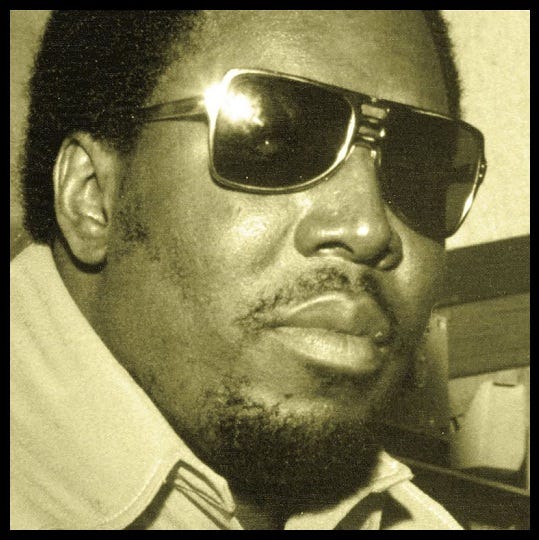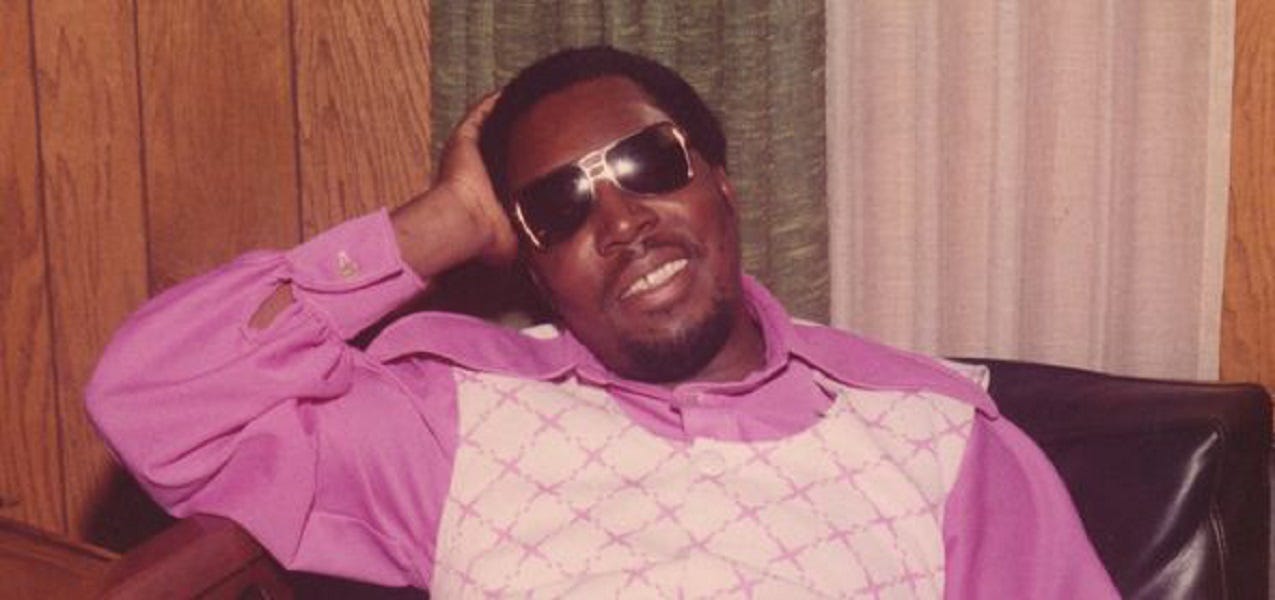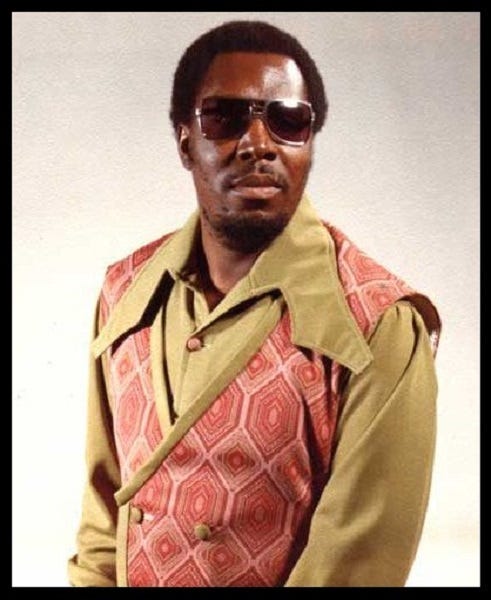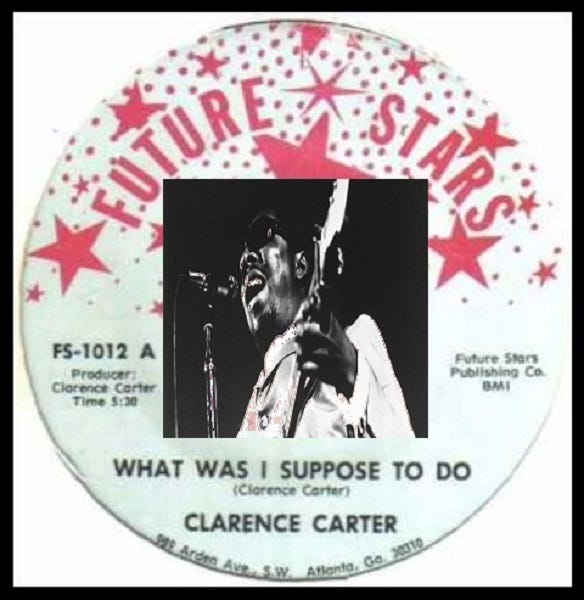Clarence Carter (born January 14, 1936) – What Was I Suppose To Do (1977)
An amazingly orchestrated, epic tale of jealousy and disrespect with a hypnotic groove, and arguably the most unique record Carter ever released.
Watch video on Twitter
View most updated version of this post on Substack
Search our full archives
Clarence Carter’s Southern soul was a staple of R&B in the 1960s and 70s, with twenty of his singles charting from 1967-73.
Clarence George Carter was born blind in Montgomery, Alabama. He began learning to play the guitar at age nine, and graduated from Alabama State University with a degree in music in 1960.
He and his college friend Calvin Scott, also blind, formed a duo. Billing themselves as Clarence & Calvin, shortened to the C & C Boys in 1962, they released four singles on Duke Records without success. In 1965 they recorded “Step By Step” at FAME Studios in Muscle Shoals, AL, which was released on Atlantic subsidiary ATCO Records. It also failed to take off.
Scott was seriously injured in a car accident in 1966, and Carter pleaded with FAME owner Rick Hall to be allowed to continue recording there as a solo artist. His single “Tell Daddy” was released on the Fame label in 1967 and was the break he and the studio/label had been waiting for, a regional hit that made it to #35 on the national R&B charts. It inspired an answer record by Etta James, “Tell Mama,” which she recorded at FAME and for which Carter received a songwriter credit.
The same year he recorded a demo at FAME with the Muscle Shoals Rhythm Section (aka the Swampers) for a great new song he had written called “Slip Away.”
After the success of “Tell Daddy,” Carter released two more singles on Fame before Atlantic Records co-owner Jerry Wexler made a deal for his future records to come out on Atlantic. His next single “Looking for a Fox” (1968) hit #20 R&B. Three decades later, Carter would memorably perform the song in Larry Clark’s 1998 film Another Day In Paradise.
For its follow up, Hall produced the upbeat jam “Funky Fever,” co-written by Carter, Hall, songwriter Joe Wilson, and Carter’s friend Marcus Daniel. Its B-side was the finished version of “Slip Away,” for which Carter gave songwriting credit to Daniel and two more friends, William Armstrong and Wilbur Terrell, the latter who would later spend many years as Carter’s drummer. The three of them were going through tough financial times and Carter wanted to help them out.
After the first batch of copies were pressed, Wexler called Hall and told him they had to flip the sides, because “Slip Away” was getting massive radio play. The revised single went to #2 R&B and #6 on the Billboard Hot 100, and Carter’s three friends got a royalty windfall.
From then until 1973, all twenty of the singles Carter recorded made the R&B charts, including six top-10 hits. Almost all of them also crossed over to the Hot 100. Carter’s songs were always funky and usually packed with innuendos and double entendres about temptation and sex.
His only record during this period not on the R&B or pop charts was “Back Door Santa,” released in 1968, and only because it was a #4 hit song on the separate Christmas charts. Its horn break was memorably sampled for “Christmas In Hollis” (1987) by Run-DMC.
Candi Staton got her start as one of Carter’s backup singers. They married in 1970 and had a son, Clarence Carter Jr., before divorcing in 1973.
The rise of disco hurt Carter’s career. Starting in 1974, he released three albums on ABC Records, but only charted once, with the #49 R&B “I Got Caught” (1975), off his Loneliness & Temptation LP. It was produced and co-written by Carter, and arranged by former Funk Brother saxophonist Andrew “Mike” Terry. The track’s full name on the album was “I Got Caught Making Love,” shortened by ABC for the single version, and featured a heartfelt spoken word intro and dramatic lyrics that told the story of him cheating with another man’s wife.
His final album for the label was A Heart Full Of Song (1976), for which he wrote and produced the epic “Jenning’s Alley,” an autobiographical tale of his impoverished childhood.
In 1977, he wrote, produced and put out a rare single on his own label, Future Stars. “What Was I Suppose To Do” was an amazingly orchestrated, epic tale of jealousy and disrespect with a hypnotic groove.
The song failed to chart and was largely forgotten, but was arguably the most unique record he ever released.
Happy 88th Birthday to the great Clarence Carter.
Further info:
“The Pop Life; Clarence Carter On Persevering,” The New York Times, February 12, 1998.
“How Soul Great Clarence Carter Put Fame Records On The Map,” by Ed Ward, Fresh Air, NPR, May 10, 2016.
#soul #funk #ClarenceCarter #CC







